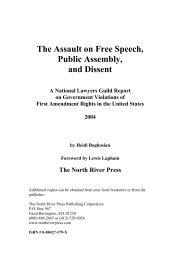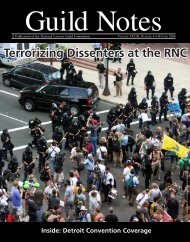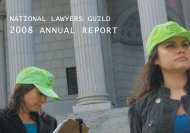Does your library have National Lawyers Guild Review?
Does your library have National Lawyers Guild Review?
Does your library have National Lawyers Guild Review?
Create successful ePaper yourself
Turn your PDF publications into a flip-book with our unique Google optimized e-Paper software.
Henry M. WillisORGANIZING—WITH OR WITHOUTTHE NLRB: The Short-TermProspects for RestoringWorkers’ Right to OrganizeThe <strong>National</strong> Labor Relations Act came into being 75 years ago,at a time when workers had no legally protected right to organize and theonly way to win union recognition for most industrial workers was to strikefor it. The year before the passage of the Act had seen massive strikes overthe right to union representation that sometimes resembled insurrections, asgovernors imposed martial law while strikers fought strikebreakers and thepolice. 1 Congress hoped to bring that sort of economic warfare within limitsby encouraging collective bargaining as a means of resolving labor disputesand by giving workers a peaceful, effective method to choose whether theywanted union representation. 2Has the Act succeeded? Twenty-five years after passage of the Act, itappeared to <strong>have</strong> delivered both stable labor relations and mature collectivebargaining relationships, at least in the most organized areas of the economy. 3By the fiftieth anniversary of the Act, however, that optimism had almostentirely disappeared as the rate of unionization had dropped steadily, while aRepublican filibuster had stopped the first serious effort by labor to strengthenthe NLRA’s protections for wrongly fired employees. 4And now, on the seventy-fifth anniversary of the NLRA, both the Actand the NLRB look less relevant than ever. The shortcomings of the Actare clearest when it comes to protecting workers’ right to organize: as onerecent study finds, employers made illegal threats of plant closures in morethan half of organizing drives and fired union supporters in more than a thirdof them. 5 These problems are even more acute in those low-wage industriesin which a large number of workers are undocumented. 6The Board has no effective remedies for most of these violations: Gissel7 bargaining orders typically come years after the original campaign hasbeen defeated, while appeals to the Board and the courts can force firedworkers to wait years for reinstatement and backpay. Not surprisingly, thenumber of NLRB-conducted elections has dropped precipitously in the past_________________Henry Willis is a labor lawyer practicing in Los Angeles and a former co-editor of the<strong>National</strong> <strong>Lawyers</strong> <strong>Guild</strong> Employee and Union Member Guide to Labor Law.


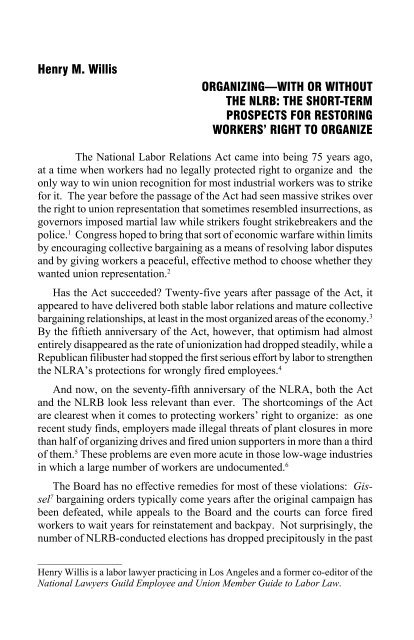
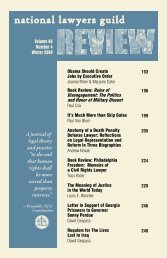
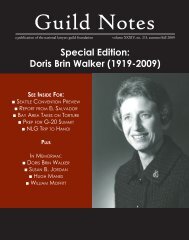
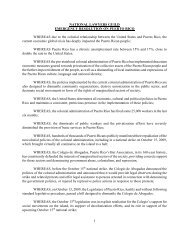
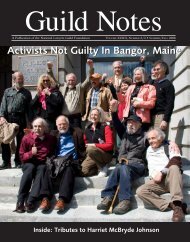
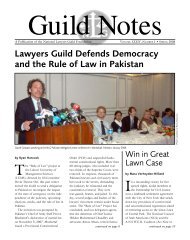
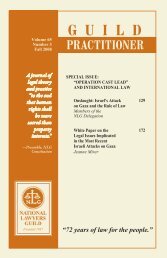

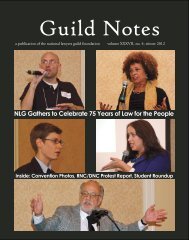
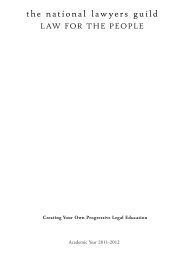
![NLGRev 68-2[1].indd - National Lawyers Guild](https://img.yumpu.com/30820772/1/167x260/nlgrev-68-21indd-national-lawyers-guild.jpg?quality=85)
